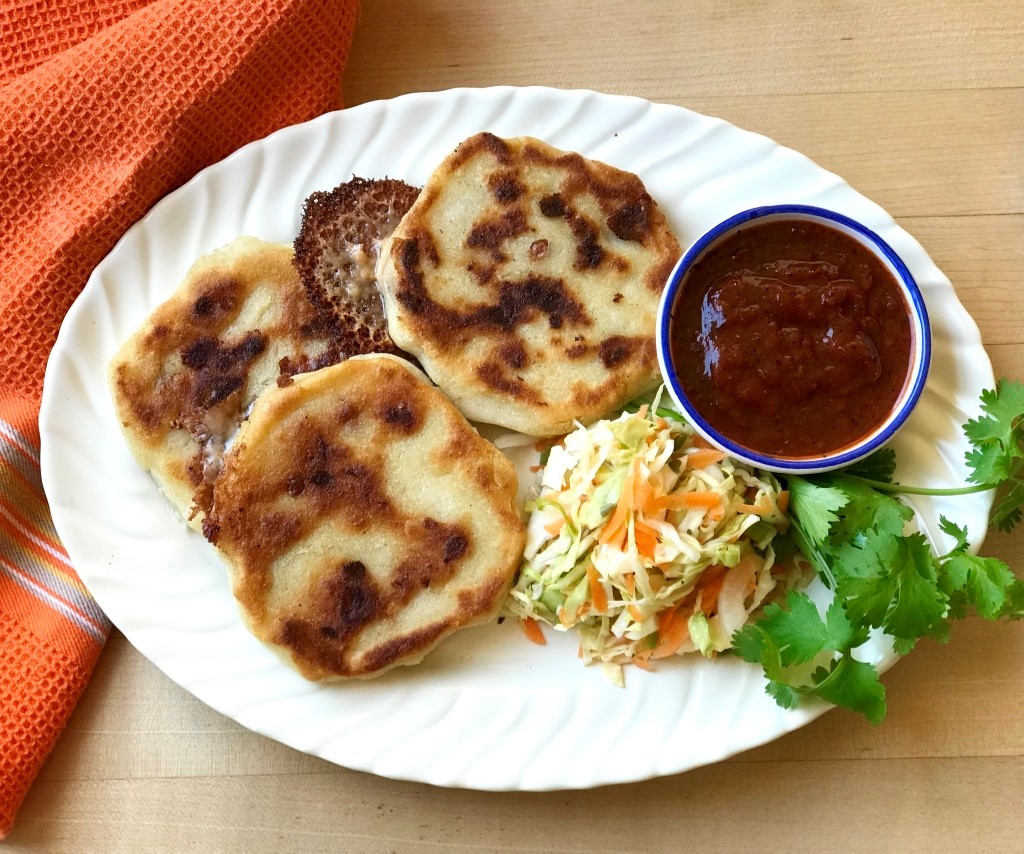Customs and Cuisine of El Salvador

Customs and Cuisine of El Salvador
Corn and beans are staples of cuisine in El Salvador.
Local favorites include:
- Pupusas—ground corn with any combination of cheese, beans, chicaharrones, loroco, squash, garlic, etc. in the in middle, fried on a griddle and eaten with your hands with tomato sauce and curtido (cabbage relish).
- Enchiladas—fried corn tortillas with fried beans, curtido, hard boiled eggs, shredded cheese, radish
- Empanadas—plantain-based dough with condensed milk or beans on the inside and fried.
- Corn tortillas with beans/egg/cheese/avocado/anything
- Atol—corn-based drink
- Tamales
- Yuca frita—fried cassava with curtido, chicharrones, sauce
- Elote loco—corn on the cob on a stick with ketchup, Worcestershire sauce, mayo and shredded cheese
- Sopa de gallina india—Free-range chicken soup (from the chickens that just live in your house)
El Salvador has a rich cultural heritage:
- For Talciguines de Texistepeque, which is observed during Holy Week, young men from the parish in Texistepeque dress up as red demons and whip the legs of people in the crowd for them to atone for their sins. Another man representing Jesus parades around the town with a bell, defeating the demons one by one.
- On Nov. 1, youth and children from Tonacatepeque participate in Calabiuza de Tonacatepeque, covering themselves in lime and dressing up like traditional Salvadoran legends. They decorate wooden carts and parade around the town, yelling and interacting with the public. In the park, women make ayote en miel, a squash cooked in a sugar cane syrup like molasses, in giant cauldrons over wood fires.
- On May 3, Salvadorans celebrate the Day of the Cross (Día de la Cruz), a fusion of indigenous tradition and Catholicism. Especially in rural areas, families put a small wooden cross in front of their house with an offering of fruit and flowers to pray for an abundant harvest.
- In Ataco and surrounding towns, families celebrate Farolitos de Ataco on Sept. 7. They decorate their homes with beautiful handmade candle lanterns to celebrate the birth of the Virgin Mary.
- Each town in El Salvador has a patron saint that is celebrated with a week of carnival, fair food, dances, rodeo and the election of a town “queen.” There are activities like a pupusa eating contest, trying to catch a greased pig, and trying to climb a greased pole. San Salvador celebrates its Fiestas Patronales the first week of August.
- Semana Santa: In El Salvador, Holy Week is celebrated with processions and rugs in the street made from sawdust, flower petals, fruit and vegetables, and other materials.
- Christmas Eve is celebrated with fireworks. Families stay up until midnight for a Christmas hug, and neighbors eat food in the streets together. Delicious chicken sandwiches or turkey are traditional foods for this night.
